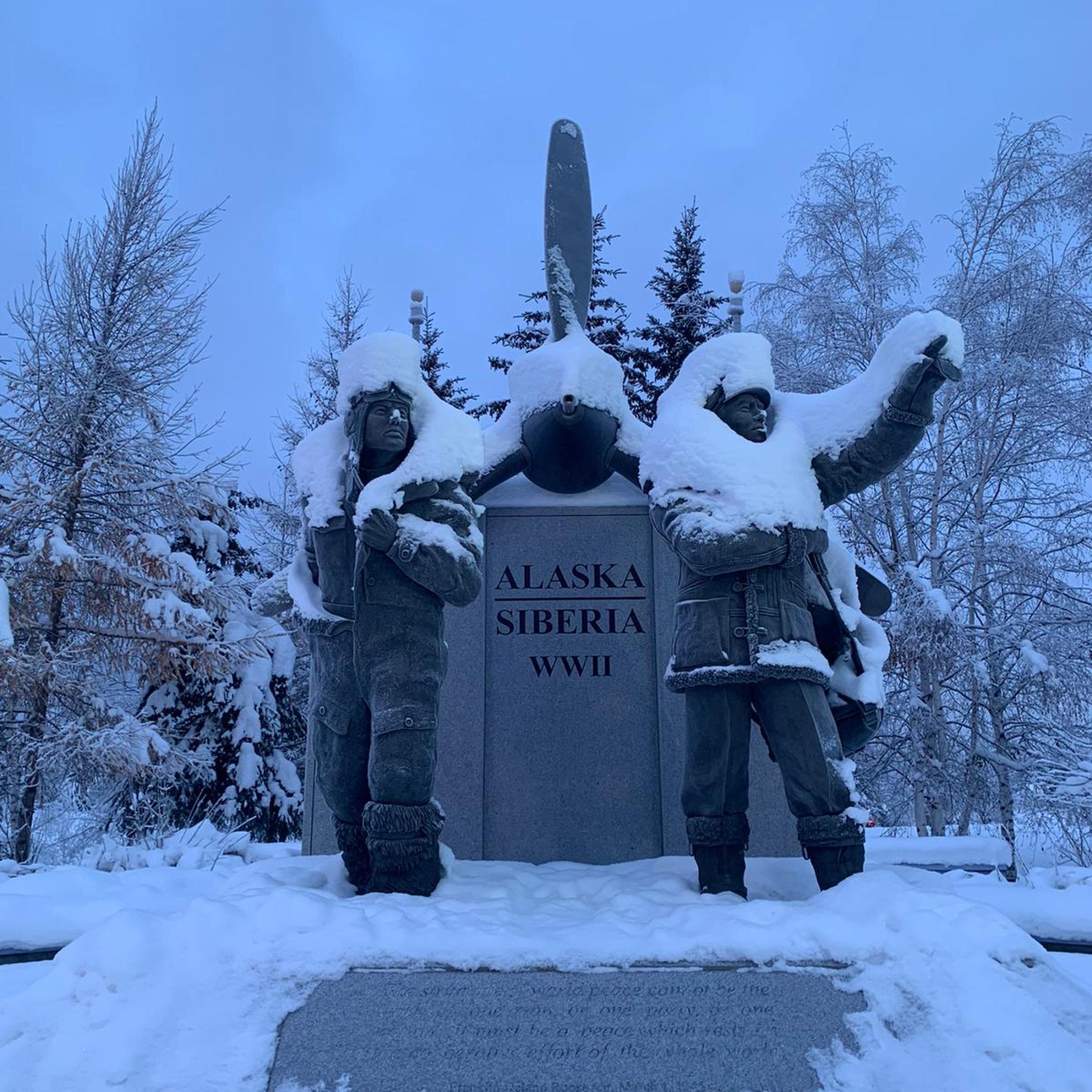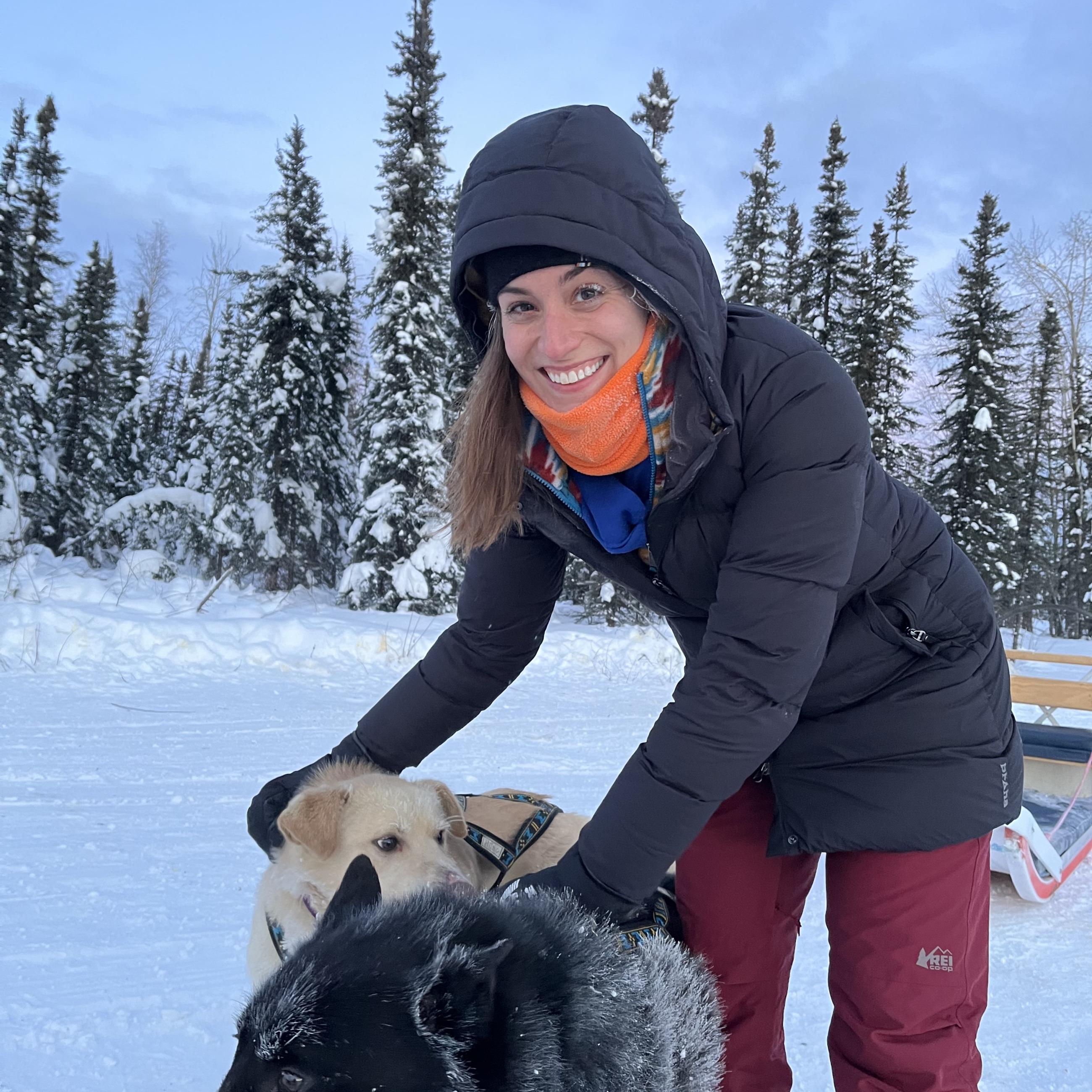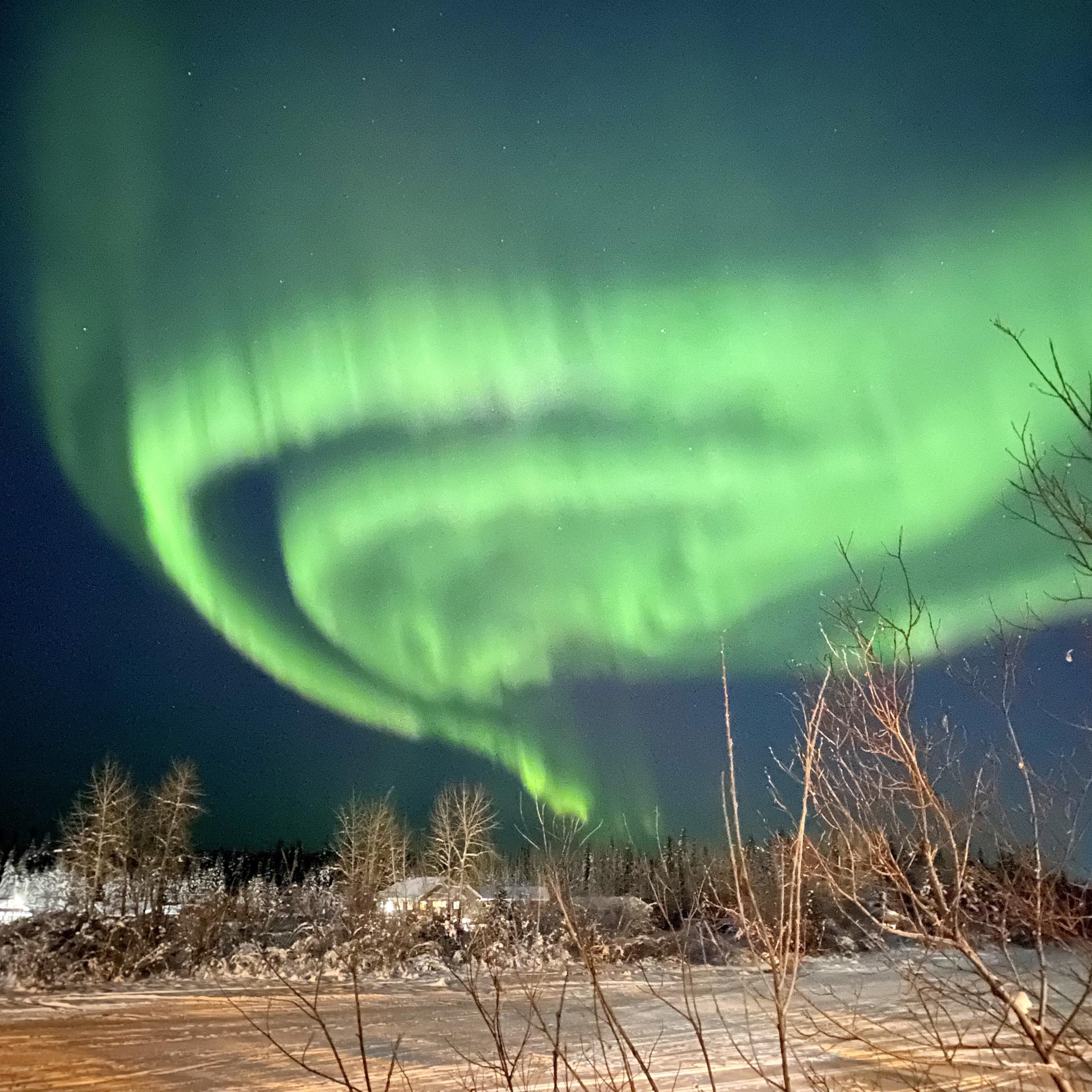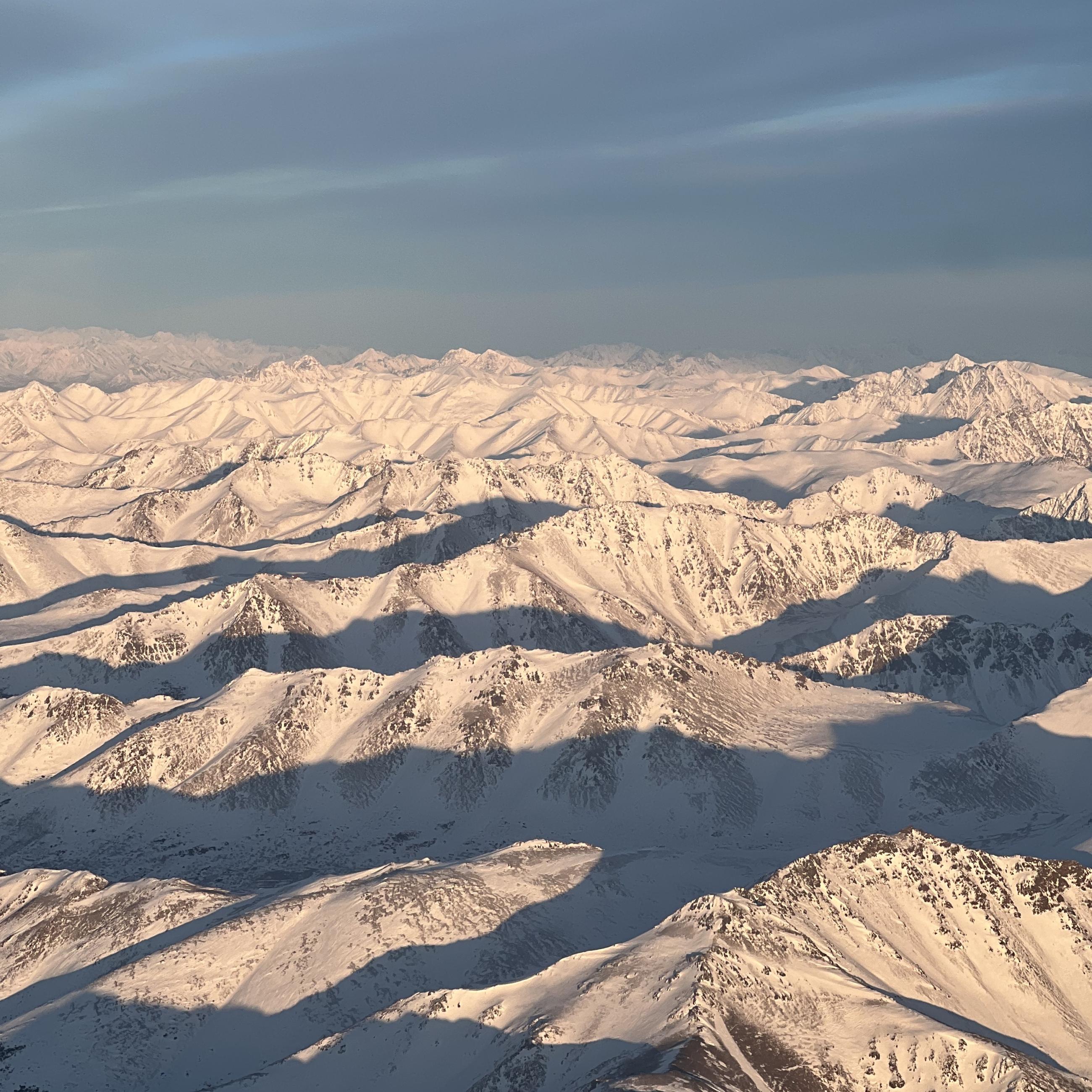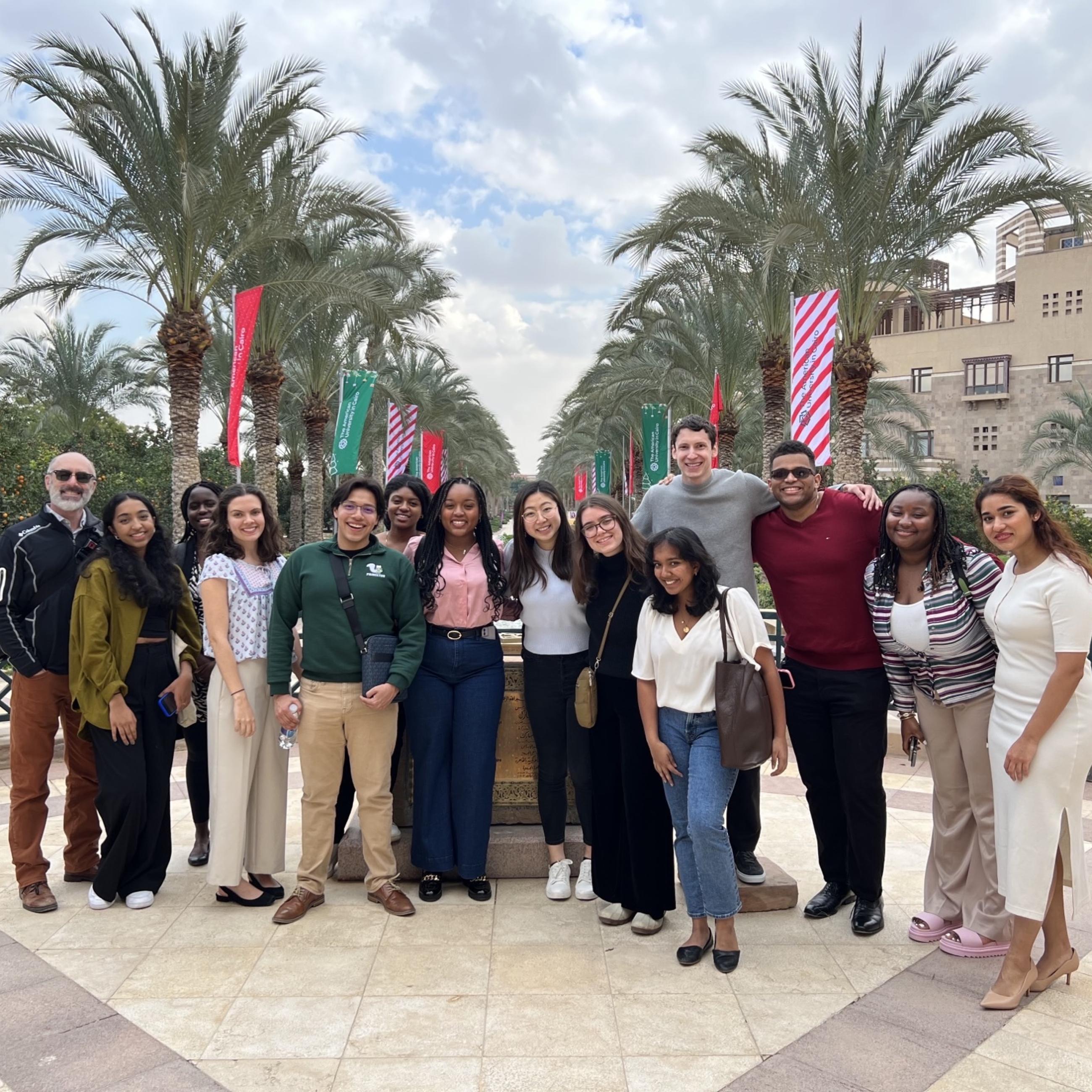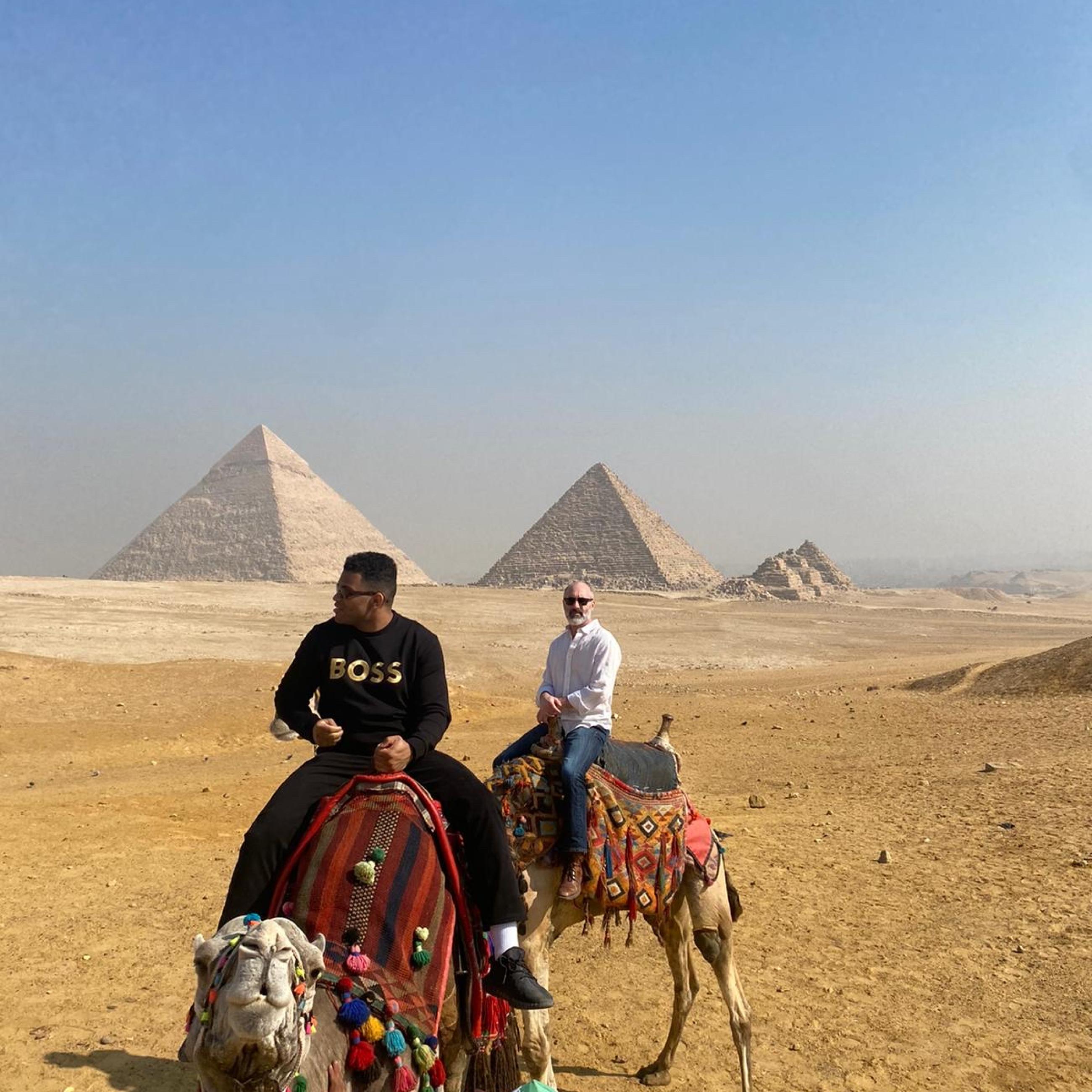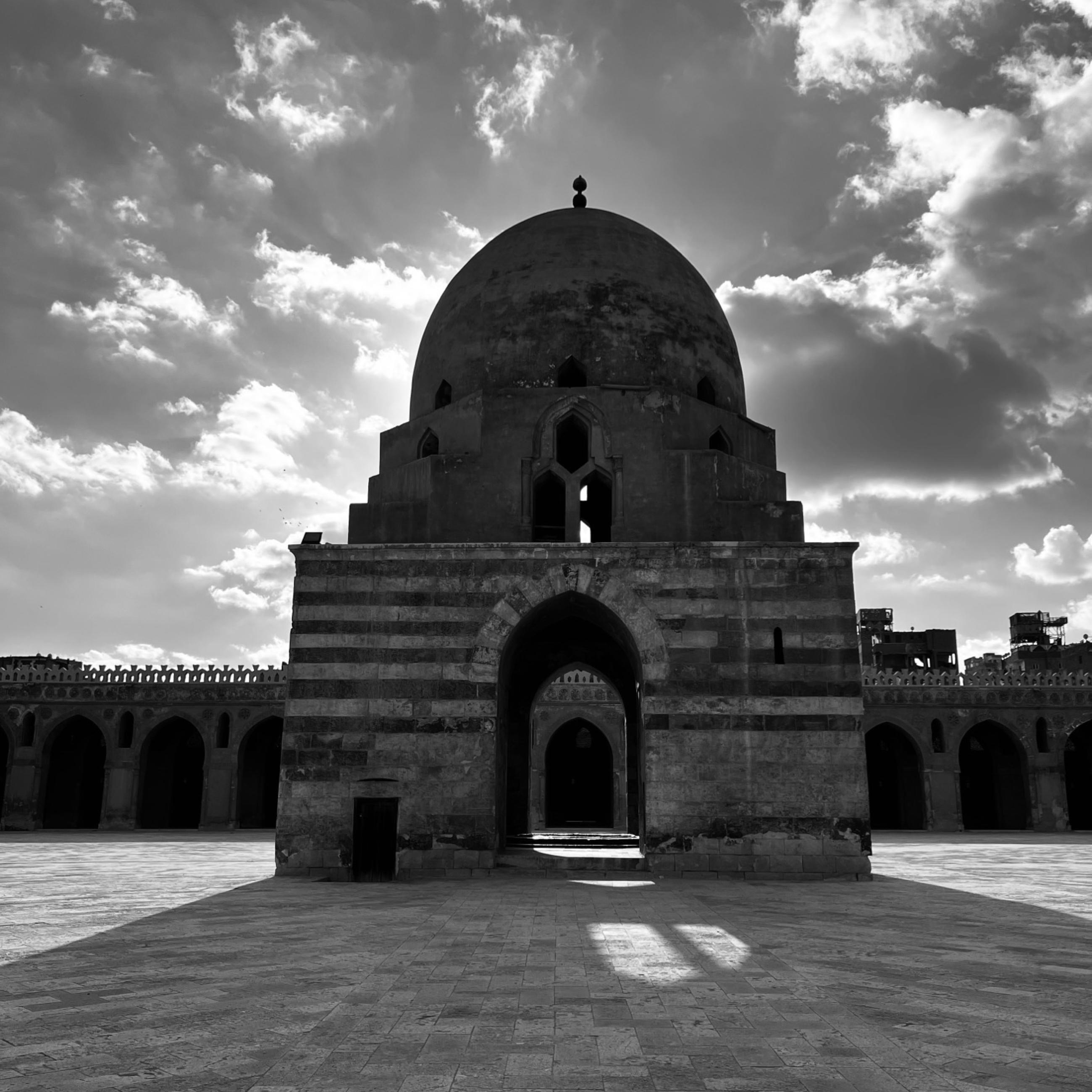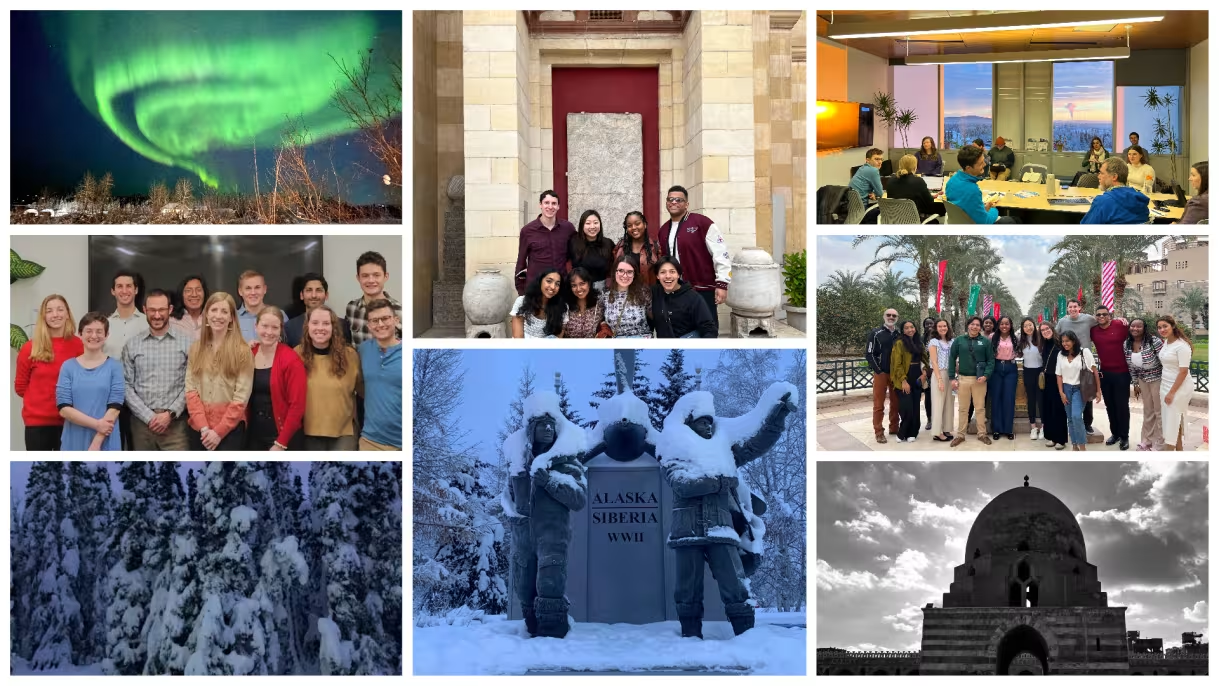

Winter Policy Trips Enrich the SPIA Experience
SPIA students returned to campus for the spring semester with new outlooks on issues such as climate change and adaptation, urbanization, migration, and infrastructure challenges following Winter Policy Trips.
These trips allowed participating students to explore key policy issues through firsthand meetings with international and local government officials, non-governmental organizations, social enterprises, and others effecting change in the respective regions.
“Climate Change in the Arctic: Adaptation, Infrastructure and Security Responses” visited the Alaska cities of Fairbanks and Anchorage, exploring issues at the nexus of worsening climate impacts, and increasing international security concerns, while also paying close attention to the role of rural communities and indigenous peoples.
“It was really interesting to learn about the role of the energy sector in the wider Alaska economy,” said Charlie Fraser MPA ’24.
How people think about energy, oil, energy transition, and climate change is obviously a very political issue, but it's also an issue that affects people on a daily basis.”Charlie Fraser MPA ’24
Melting glaciers, animal migration, and residents falling through frozen rivers while traveling with sled dogs were just some of the topics students heard about these daily impacts.
“It's a really difficult situation,” said Claire Dennis MPA ’23, who helped to organize the trip. “Alaska’s fisheries are vital in terms of providing that protein to the world, and salmon aren't coming the way they used to. Part of that's overfishing, but part of that's warming waters that disrupt their hatching cycles.”
Perhaps most striking to many students on the trip was the stark difference between the state’s political priorities and its environmental priorities.
“The entire economy is built around the oil and gas industries,” Dennis said. “Here you have what is basically the frontline of climate change in the United States, and then you have this entire system built against taking action.”
While climate was a main part of the trip to Nairobi, entitled “Africa’s Rising Cities,” the challenges faced by policymakers in that region are much different.
Jessie Press-Williams MPA ’23, who helped to organize the trip, explained that Africa is home to some of the countries most vulnerable to the effects of climate change.
Another significant factor is Africa’s current period of rapid growth and transition, leading to migration, conflict, and concerns of security.
“Even within Nairobi, there are so many different narratives going on,” Press-Williams said. “There's a lot of back and forth about how the government will respond and ambitious plans from the government, as well as very real constraints about how to implement some of those goals in this changing city context.”
In addition to the student experiences, the Winter Policy Trip to Kenya also sought to increase engagement with local African policymakers, which could lead to ongoing relationships with SPIA through guest lectures, practitioner-taught courses, and research connections.
Press-Williams said there are a lot of different experiences and voices that don't always get represented on campus, and it’s important to include diverse perspectives, particularly when discussing such complicated issues.
“It's really easy to have some voices just get lost in the conversation because there's not as much communication between, for example, Nairobi and Princeton, as there maybe should be,” she said. “We’re trying to think about who is represented on campus and who isn’t and how we might be able to supplement that.”
On another Winter Policy Trip, Professor Sherwat Ibrahim, Associate Professor of Operations Management at The American University in Cairo (AUC), led a group of 13 SPIA undergraduates to visit AUC. As a visiting research scholar, Professor Ibrahim taught an undergraduate course titled “Special Topics in Security and Sustainability: Social Entrepreneurship and Sustainable Development in Africa” in the Fall 2022 semester, and is set to teach this course to our graduate population in Spring 2023.
The group explored Cairo’s strategic location as it serves as a hub between the Middle East and Africa. The program included seminars and panel discussions led by AUC faculty on such topics as developmental challenges in the region, innovation practices in Egypt and the Arab region, entrepreneurship in the MENA (Middle East North Africa) region, and managing NGOs.
Exploring these issues through practical opportunities like the Winter Policy Trips helps to supplement the SPIA education.
Most students noted that the Winter Policy Trips either excited them about new career policies or reinforced that they were on the right track.
“Personally, I want to work in climate adaptation finance for cities, trying to figure out how to bridge the gap between financing institutions and city leaders who need funding for projects to respond to climate change,” Press-Williams said. “It was really cool for me to hear that there are opportunities in that space.”
Fraser added: “The Alaska trip helped me clarify why I was interested and be more detailed in which specific area I’d like to explore. It also showed me where I still need my skillset or experience to be enhanced so that I can enter the field when I graduate.”
The trips also provided students invaluable networking opportunities, allowing them to ask various stakeholders about their career journeys and how to get involved with their respective spaces.
“If I had tried to go alone, it would not have been possible for me to meet the level of people we met with,” Dennis said. “That was just unbelievable to have that access through Princeton and through our connections.”
In some cases, those connections included SPIA alumni.
“Some of our best meetings were with SPIA alums at a lot of different levels of these organizations,” Press-Williams said. “Just to hear their personal stories and for them to talk about what their SPIA education had been like, that was really powerful.”


